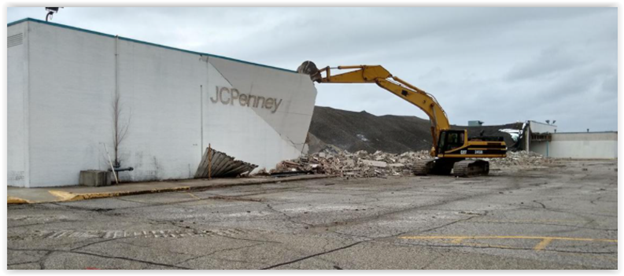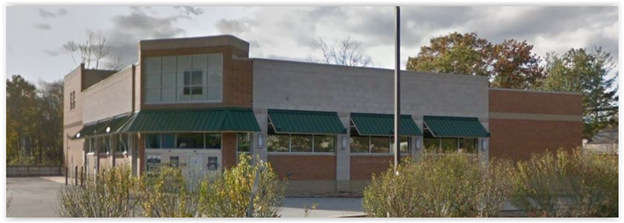There is a feeling of safety when you purchase a property that has a Triple Net (NNN) lease from a giant corporation. Many investors flock to these NNN deals because there is little that can go wrong. What are the chances that Starbucks will go bankrupt? After all, they have almost $3 billion in cash on their books. Many thought the same about JCPenney who had a 120-year run until the pandemic. Brooks Brothers also met their demise after a 200+ year run. Chuck E. Cheese, Men’s Warehouse, Neiman Marcus, GNC, Hertz, Sears, and Toys R Us all met the same fate.

Imagine the investor who spent $10 million dollars on a JCPenney thinking they are set for life. The result of the JCP bankruptcy is that their lease obligations were terminated. That $80,000/month rent will no longer be deposited into the landlord’s bank account but hey, their loan payments are still due.
To make matters worse, let’s assume you spent $20 million on a shopping center with JCPenney as the anchor. One by one, these tenants will leave when their leases come due because they no longer have the overflow traffic that their anchor tenant supplied. Think about that boutique store that you never would have gone to but, because it was next to a Kroger, JCP, or Lowes, you just stopped in. That stop-in traffic becomes a thing of the past when the anchor tenant goes dark. Repurposing a big-box-retailer is very difficult and often results in a lower-paying tenant.

Below is a photo of a former Walgreens. This property sold for $7m when it was occupied. Now that it has gone dark, it is for sale for $1.5m.

Let’s revisit the Starbucks example. They are one of the safest tenants around so the risk of bankruptcy is almost non-existent. In a May 5th letter to landlords, Starbucks Chief Operating Officer wrote:
“Effective June 1 and for at least a period of 12 consecutive months, Starbucks will require concessions to support modified operations and adjustments to lease terms and base rent structures.”
As a landlord, you want to be able to work with your tenants in good faith. In many cases, landlords were able to furlough mortgage payments as well. The Cheesecake Factory CEO sent a letter to all of its landlords and stated:
“Due to these extraordinary events, I am asking for your patience and, frankly, your help. Unfortunately, I must let you know that The Cheesecake Factory and its affiliated restaurant concepts will not make any of their rent payments for the month of April 2020.”
They did not ask for concessions, they just informed their landlords that they will not be paying rent. The pandemic is an extreme example so let’s identify another risk.
Risks of NNN leases outside of the COVID-19 Pandemic
At the end of the lease, the NNN tenant will have renewal terms of, say, 5 years with a 10% rent increase. There is nothing obligating them to those terms because they control all of the leverage. They can come back to you and say we want a 10% reduction in rent or we will move to a more favorable location. The landlord has little recourse other than to agree to those terms. Of course, reputation is critical in real estate so, this cannot be their standard operating procedure, but it does happen.
Here is another blog that breaks down a sight-unseen commercial real estate acquisition to give you another idea of the bumps in the road to acquiring commercial real estate investments.
Disclaimer: The views and opinions expressed in this blog post are provided for informational purposes only, and should not be construed as an offer to buy or sell any securities or to make or consider any investment or course of action.
